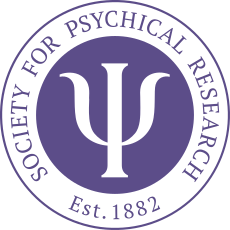Leo Ruickbie
It had been snowing in Las Vegas – something so rare that people were taking photographs of it – and Robert Bigelow had been delayed by the weather. John Waite’s 1984 No. 1 hit ‘Missing You’ played over the phone whilst I waited to talk to the American billionaire about his latest project. I had done my background research, I knew there were people he was missing and his project, an essay competition on life after death, was surely connected to that. And the total amount of prize money he was offering – over a million dollars – for a subject blighted by underfunding was even rarer than snow in Las Vegas.
After making a fortune in commercial real estate, Robert Bigelow had invested in his true passion – space exploration – setting up Bigelow Aerospace in 1999 and launching his first payload into space in 2006, the unmanned inflatable module Genesis I. But it has not been his only passion. Over the years he has funded research into consciousness, UFOs and the paranormal. Working with the Defense Intelligence Agency, he had helped develop the Advanced Aerospace Threat Identification Program – an early warning system for alien attack – and had once owned the infamous Skinwalker Ranch, an anomaly hotspot in Utah known for reports of UFO activity, Bigfoot-like creatures and poltergeist phenomena. And in June 2020, he established the Bigelow Institute for Consciousness Studies. Robert Bigelow was certainly not your average billionaire.
His assistant came back on the line and I was transferred through. The phone rang again briefly somewhere in his huge facility biting into the desert sands on the edge of Las Vegas. The global pandemic had ruled out a face-to-face interview. Instead, the disembodied voice of a man 9,000 km away magically emerged in the air in front of me. Time zone differences meant that I was 9 hours in his future. While he was enjoying the new morning, I was shrouded in deepening darkness, with only the small pool of light from a desk lamp to stop me thinking that this was like being at a séance.
The New York Times had broken the story of the contest and newspapers around the world quickly picked it up. Even as I worked on an edited collection of essays on exactly this subject – called Is There Life After Death? and drawing together some of the world’s leading experts – it had come out of the blue for the parapsychological community. Just who was Robert Bigelow and why was he offering so much money now to answer a question that has baffled humanity for millennia?
The full interview is published in The Magazine of the Society for Psychical Research 3.

